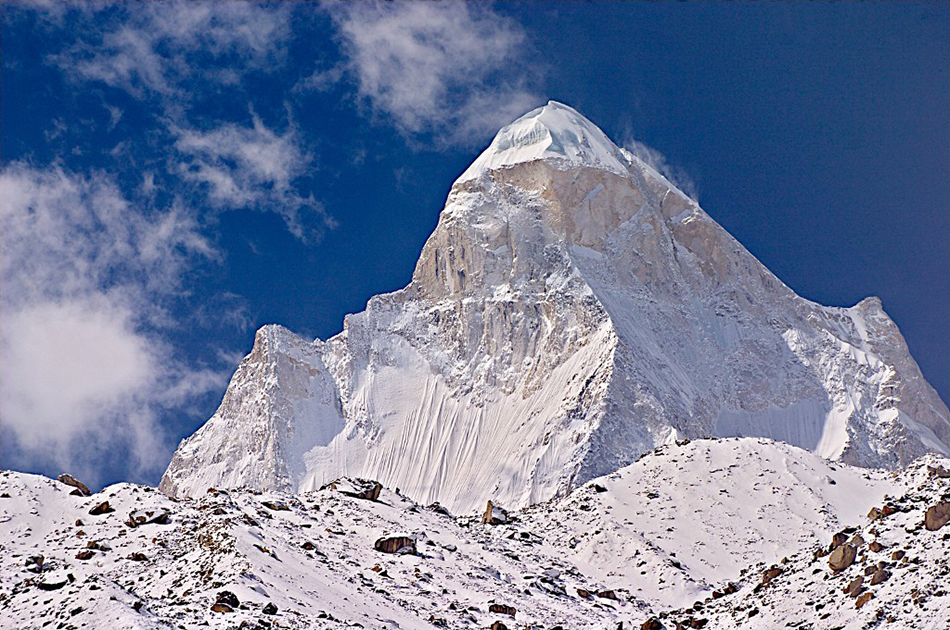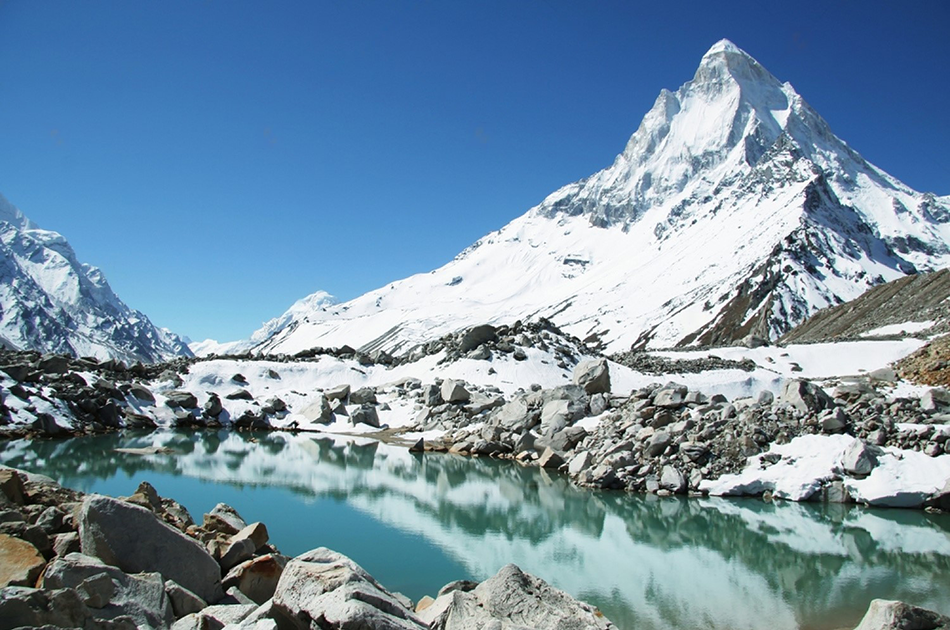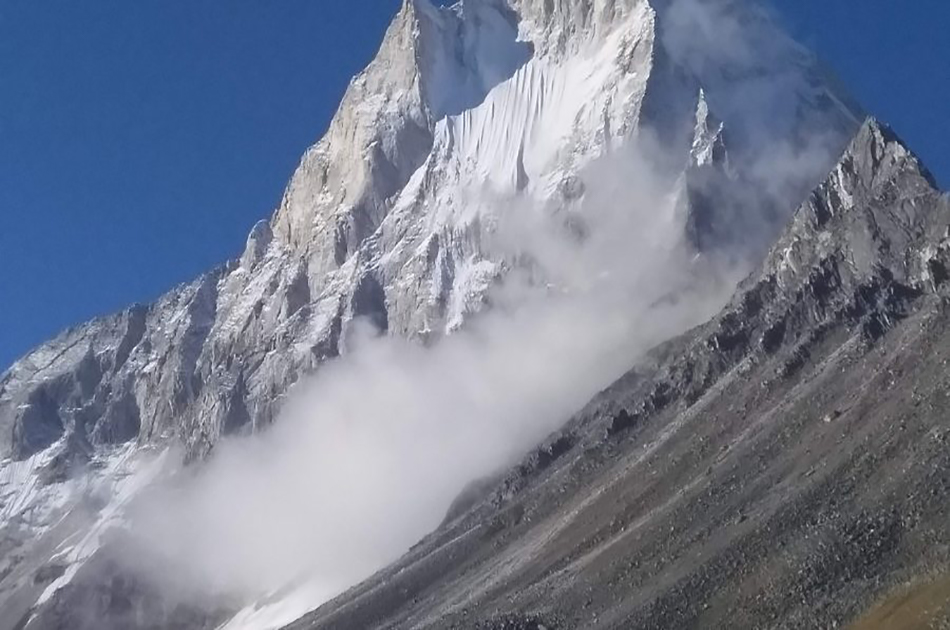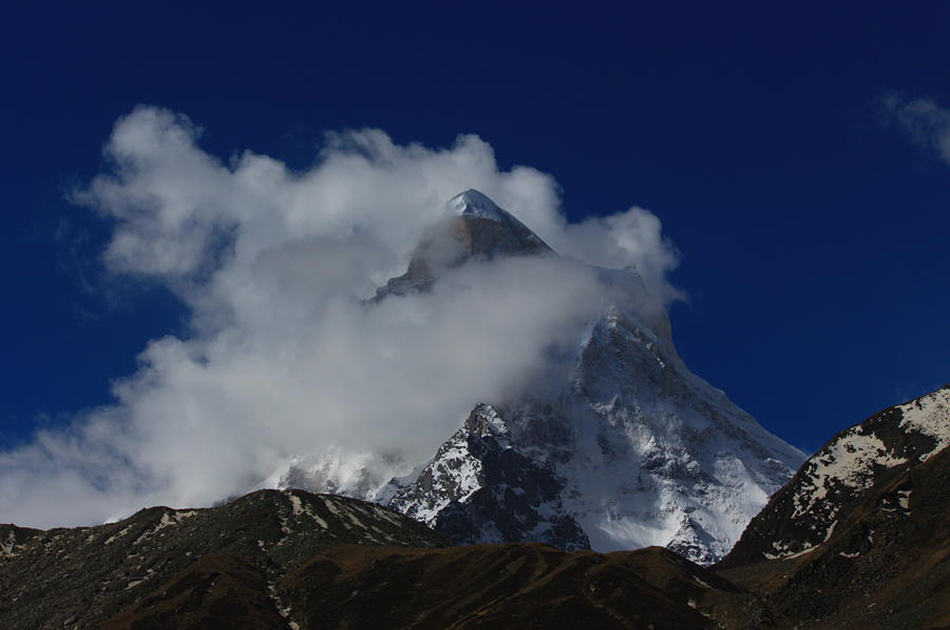About
Mt. Shivling (21,467 FT), situated in Tapovan in the Western Garhwal Himalaya, is
undeniably one of the most stunning mountains on the earth. The “Indian Matterhorn”
was once known for its tooth-like jagged snowcapped peak. Shivling’s monstrosity is
best seen from its base camp Tapovan, which rises to a dizzying height of 6543
meters. Climbers must have previous technical skills and mountaineering experience,
as well as knowledge of roping up techniques, ascending and descending, and the use
of crampons and jumars, to complete the summit climb. Gangotri Glacier, the source
of the Bhagirathi River, is situated near the peak’s base.
This pyramid-like conical-shaped peak, popular among mountaineers for its
difficulty, is a treat for climbers looking for a challenge to push their limits and
train for 7000M+ peaks. The trail to Mt. Shivling follows the well-known Gangotri
trail, which features heavenly vistas and landscapes unique to this part of the
Indian Himalayas. Tapovan’s base camp is unquestionably one of the most stunning
campsites on the planet, with towering peaks on all sides. Take on the Mt. Shivling
expedition to satisfy your lifelong desire.
Itinerary
Things to Carry
• Footwear: The trekking boots which must be waterproof and snow proof, normal boots,
floaters, and woolen socks.
• Backpack: (50 ltr), Daypack (20-30 ltr), Duffel bag.
• Clothes: Jacket and trousers that are both waterproof and breathable. Jacket
(synthetic or down feather fleece), synthetic insulated trousers, poncho,
sweatshirt, inner thermal (upper & lower), fleece, t-shirts, cotton trekking pants,
shorts.
• Season wise Clothes:
• Hand and head protection includes liner gloves, bandannas, sun hats, woollen caps,
and face masks, among other things.
• Accessories: Sunglasses/goggles, anti-glare lenses, water bottle, hydra bag, and
headlamp with spare bulb and extra batteries are all recommended.
• Trekking Gears: Toolkit for an emergency. Sunscreen, a toiletry pack, water
purification pills, Ziploc packs, ear plugs, first-aid kit, and the necessary
medications are all recommended.
• Camping Equipment: Sleeping bags of lining (extreme -5 to +5 Celsius if you have
one), trekking sticks, and so on.
• Warm top/light micro fleece pullover/full sleeve T shirt – 2/3.
• Water resistant/repellent trekking pants with an inner lining for added warmth- 2
High-quality windproof/water-resistant outer shell (jacket) with a proper hood.
• Thick Fleece / Full-sleeve Woollen Jumper, Down Jacket with at least 600 fill
capacity Innerwear with a thermal component (upper and lower).
• Woolen hat, inner fleece gloves, and outer water-resistant gloves.
• 4–5 pairs of thick woollen socks and standard socks, scarf/muffler (optional)
• Waterproof Trekking/Hiking shoes with a thick heel and high ankles that are
comfortable to wear. Sneakers/sport shoes are ideal for camp.
• Poncho or raincoat. A small, light-weight towel.
• A hydration pack and an insulated water bottle (optional)
• Sunglasses with UV cover and the potential to cut light, as well as a cap or floppy hat to shield the strong sun off your skin (important when traversing through snow)
• Trekking pole or sturdy walking stick Lip Balm, Sunscreen Lotion
• Flashlight / torch (with extra batteries) Medications, if any special prescription is needed Toiletries for personal use
• Carry a rain cover over your luggage • Day pack/small bag that you can carry on your back all day to keep your essentials in
• Keep a few poly bags or plastic containers in your bag to place your things in if you need to in case of heavy weather.
What we'll give/What we won't:
Cost includes:
• Pick and Drop Service from mentioned location
• Fees for the guide and the chef
• Camping facilities' rent
• Entrance fees to the forest
• To transport camping gear, a porter and mule are required. Please keep in mind that personal baggage can be borne by mules and/or porters for a fee
• From the first day's dinner until the last day's brunch, both of the meals are vegetarian
• Throughout the walk, you'll be staying in a tent or if possible, then in a guest house
Cost Excludes:
• No pickup and drop point from/for your hometown
• Personal costs include things like tips, personal medications, and conference calls, etc
• Apart from what is mentioned above, some transportation assistance during the trek
• Porters/mules can carry personal luggage weighing up to 12 kg per bag per person for Rs 350 per day per bag







